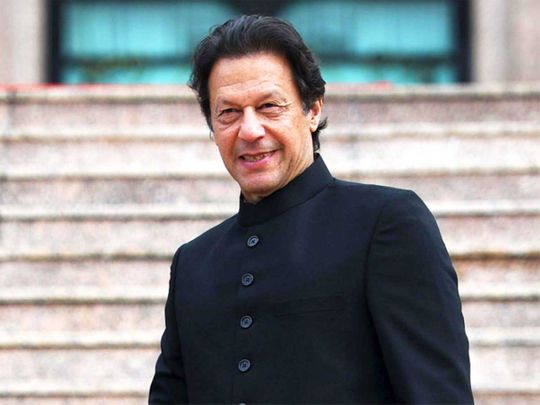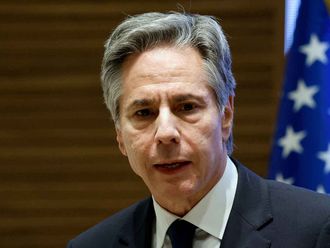
Highlights
- You don’t have to be a rocket scientist to comprehend the fundamentals of the scenario of the current bleakness of Pakistan’s economy
- The questions are many, and they are in your face, despite the glib and slick whataboutism, blame shifting, and finger pointing of the opposition parties
Thank God, there is no load shedding in Lahore this typical scorcher of a June. That is the recurring thought of all who live in Lahore, one of the biggest cities of Pakistan, the country that has eight months of varying degrees of heat. Without going into the technicalities of the non-stop–at least where I live–supply of electricity, while the cost of essential utilities has increased or would be increased or is dreaded to be increased, I, being the member of the glass-half-full minority of the world, consider it a blessing. Non-stop electricity, not the increased or would-be increased cost of everyday stuff.
It is in all probability due to the attention the previous government of the Pakistan Muslim League-Nawaz (PMN-L) paid to the eradication of load-shedding, the invisible monster that was one of the major reasons of debilitation of every micro and macro aspect of Pakistan. While the Pakistan Tehreek-e-Insaf (PTI) won the election on the slogan of a ‘Naya Pakistan’, the PML-N’s most favourite slogan in 2013 was a ‘Roshan Pakistan’.
What I also know while opening the seal of the large pack of the Made-in-Pakistan margarine, Blue Band, that prices of almost everything that I use or eat, or is part of the general grocery list of my house, have gone up in a sharp tug, the kind that makes the movement of a limb kinda painful. From petrol to electricity, from fruit to vegetables, from local products to foreign stuff that was already expensive, from electronics to services of handymen, the cost is steeper for almost everything now. It has happened in the time of Imran Khan’s party in power, and the opposition parties do not miss a single opportunity to bash Khan and his first-time government for the misery millions of Pakistanis face on a day-to-day basis. A tad convenient, I’d say.
A now almost constantly roshan (illuminated) Pakistan is credited to the hard work of the governments of Prime Minister Nawaz Sharif, and later his replacement, Shahid Khaqan Abbasi. A now teetering-on-the-verge-of-an-economic-precipice, ghareeb (poor) Pakistan is credited to the new government of Prime Minister Imran Khan. In my one word that I love for its terse ability to express much: seriously?
State of economy
You don’t have to be a rocket scientist to comprehend the fundamentals of the scenario of the current bleakness of Pakistan’s economy, and while I wouldn’t presume to know beyond the rudimentary things-are-bad-as-hell of economy, what I know as simply as my name: it is not the PTI government or Imran Khan’s 10-month-old premiership that is, in any way, responsible for the present state of the economy, the increased cost of electricity and petrol, more taxes for the salaried class, and the higher price of my desi margarine. Yes.
Notwithstanding PTI’s pre-electoral slogans and bright-eyed promises to change the financial status of Pakistan being bigger than PTI’s comprehensive grasp of the gravity of the reality once in power, what is indisputable: the PTI government is a very grudging and a very worried and a very exasperated inheritor of the numerous failed economic policies, and gargantuan mishandling of the national treasury that is the result of the decade-long (mis)-governance of the Asif Zardari-led Pakistan People’s Party-led (PPP) government (2008-2013), and Nawaz Sharif and Shahid Khaqan Abbasi-led PML-N government (2013-2018).
The questions are many, and they are in your face, despite the glib and slick whataboutism, blame shifting, and finger pointing of the opposition parties. Like all glib and slick things, there is zero chance of the Imran Khan-is-to-be-blamed-for-the-present-agony-of Pakistan sticking. Not even the staunchest Khan basher and a hardcore critic of his government, even in their hour of least honesty, can have the shameless audacity to hold the PTI responsible for Pakistan being stuck in a dark cul-de-sac of economic gloom. No amount of labelling the budget 2019-20 an ‘IMF budget’ would whitewash the massive misappropriation of national treasury and international funds and debts. There are not enough defences of the indefensible that the opposition could have the ingenuity to cough up to camouflage that they messed it up before they were voted out of power. And that too, in a big, big way.
A bad taxation system that benefited a few and made life hard for millions, and debts, liabilities, and huge investments in projects that were unlikely to yield the expected financial gains, there is much that was wrong, and that must be accounted for today without any effort to shift blame.
The questions are many, as a Pakistani financial manager of a US pharmaceutical company tweeted: “The question isn’t why debt was raised. The questions are: What caused the grave deficits that led to the need for borrowing and skyrocketing debt? Where did all the money raised from debt disappear? What was it used for, what public benefit was derived from it?”
And the one response to his tweet was: “The question is project selection, design, and their outcomes. Billions have been wasted on undertaking projects and then later running them on subsidies. That’s the key. Why were these projects initiated in the first place?”
Normal, regular, well-meaning Pakistanis, they have many logical and substantial questions. Don’t hold your breath for a rational answer from anyone in the previous governments that on the slogan of ‘Pakistan Khape’ and ‘Roshan Pakistan’ made a great deal of noise amidst pomp and fanfare, but left a performance report card that was covered in red.
Read more
- Justice and accountability in Pakistan: Will Imran Khan be true to his promise?
- Pakistan Prime Minister Imran Khan is committed to peace and will fight bigotry
- Imran Khan will realise Mohammad Ali Jinnah’s dream of a glorious Pakistan
- Hope always lives in Imran Khan’s Shaukat Khanum Memorial Trust Hospital
- The Imran Khan Factor: It is simply to make Pakistan the best version of itself
The facts exist for anyone who wishes to go beyond political point-scoring. One such fact that the opposition, namely the PPP and the PML-N, and their allies, in their holy crusade to oust the PTI government on an anti-inflation slogan, seems to have forgotten is that in the first ten months of the PPP government, the inflation rate was 25.3 percent, and in the first ten months of the PML-N government, it was 10.9 percent. Today, after ten months of the PTI government, the inflation rate is at 9.4 percent.
This is merely one example of the truth versus propaganda.
As the opposition stand together in a wobbly alliance, welded in an ungraceful hurry, made up of political opportunism and petulant disregard to national good, the latest stance speaks of their personal hegemonic agenda taking supremacy over the idea of doing the best for the country. The budget will not be allowed to pass. Using the budget as an instrument of chastisement of the government, as a cover to protest against the imprisonment of Nawaz Sharif, and the NAB arrest of his nephew, Hamza Sharif, and Asif Zardari and his sister, the ongoing campaign to impede the smooth passing of the budget that might have certain tough measures but has a singular agenda: to do the best for people and Pakistan.
The opposition’s agenda of disruption of parliament also has a singular point: use their elected power to call the legal process of accountability of NAB a political witch-hunt, a systematic obliteration of political opposition–the populist terms for gaining of public sympathy, and establishment of a narrative of victimisation at the hands of the establishment and its civilian ‘puppet.’
Economists, analysts of economy and policy, the realists and the pragmatists, and government and its like-minded folks who are focused on the big picture of the betterment of Pakistan, present facts without indulging in a futile exercise of finding a smokescreen for the hard decisions the PTI has had to take, and that once implemented in full may bring more short-term misery to millions from the low-income, middle income and salaried strata of Pakistan. One hard decision is the inclusion of certain points in the budget.
It is imperative to comprehend the reality, and it is the foremost responsibility of the government and its spokespersons to keep the public in the loop on the truth of the situation, reasons behind the dire situation, steps that are being taken, the expected result, time it would take for things to change for better, and the short and long term economic plan of the government.
Speaking the truth, presentation of a clear and practical assessment of the issues, and a realistic framework for current and future initiatives and policies must be the principal element of Prime Minister Imran Khan’s government in its communication with the public on all levels, and in all matters. Truth works, even when it hurts.









